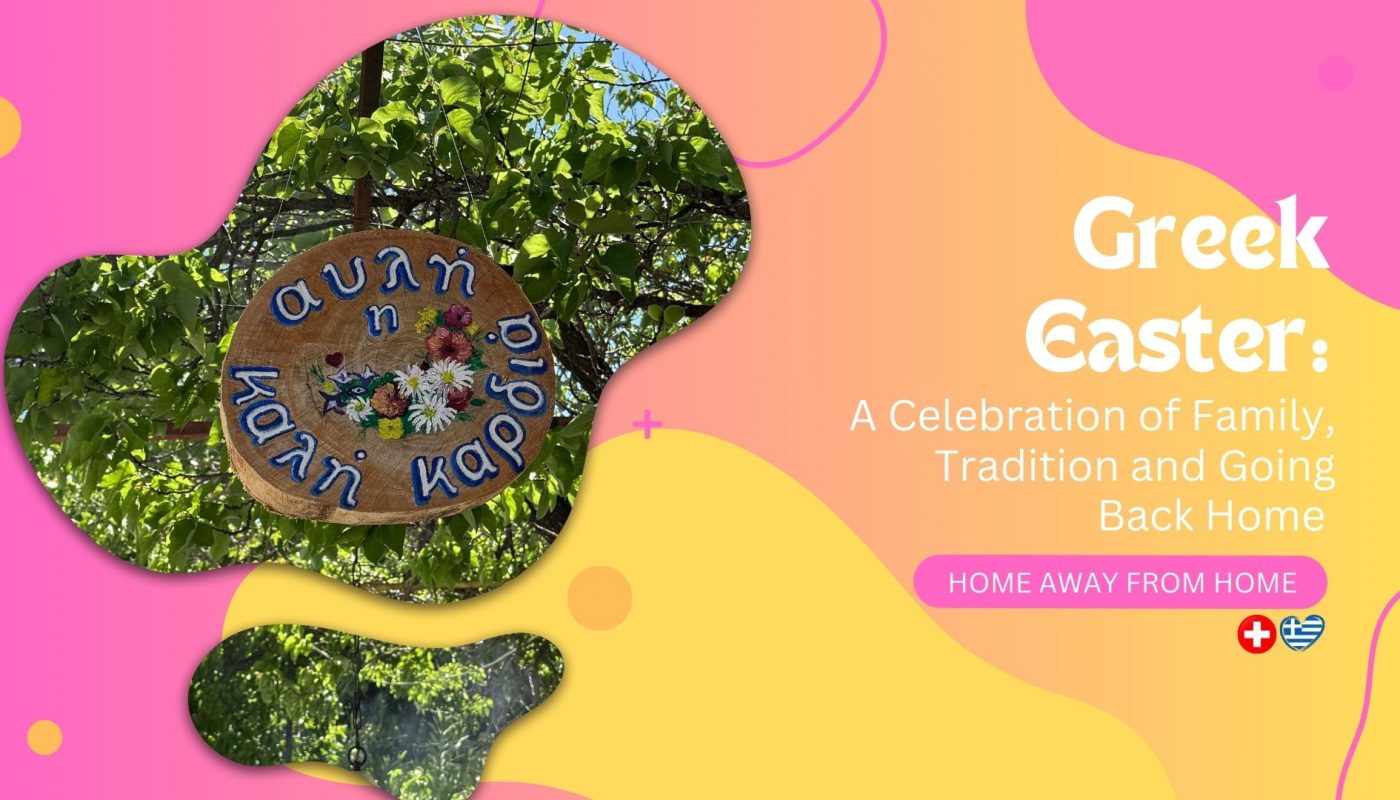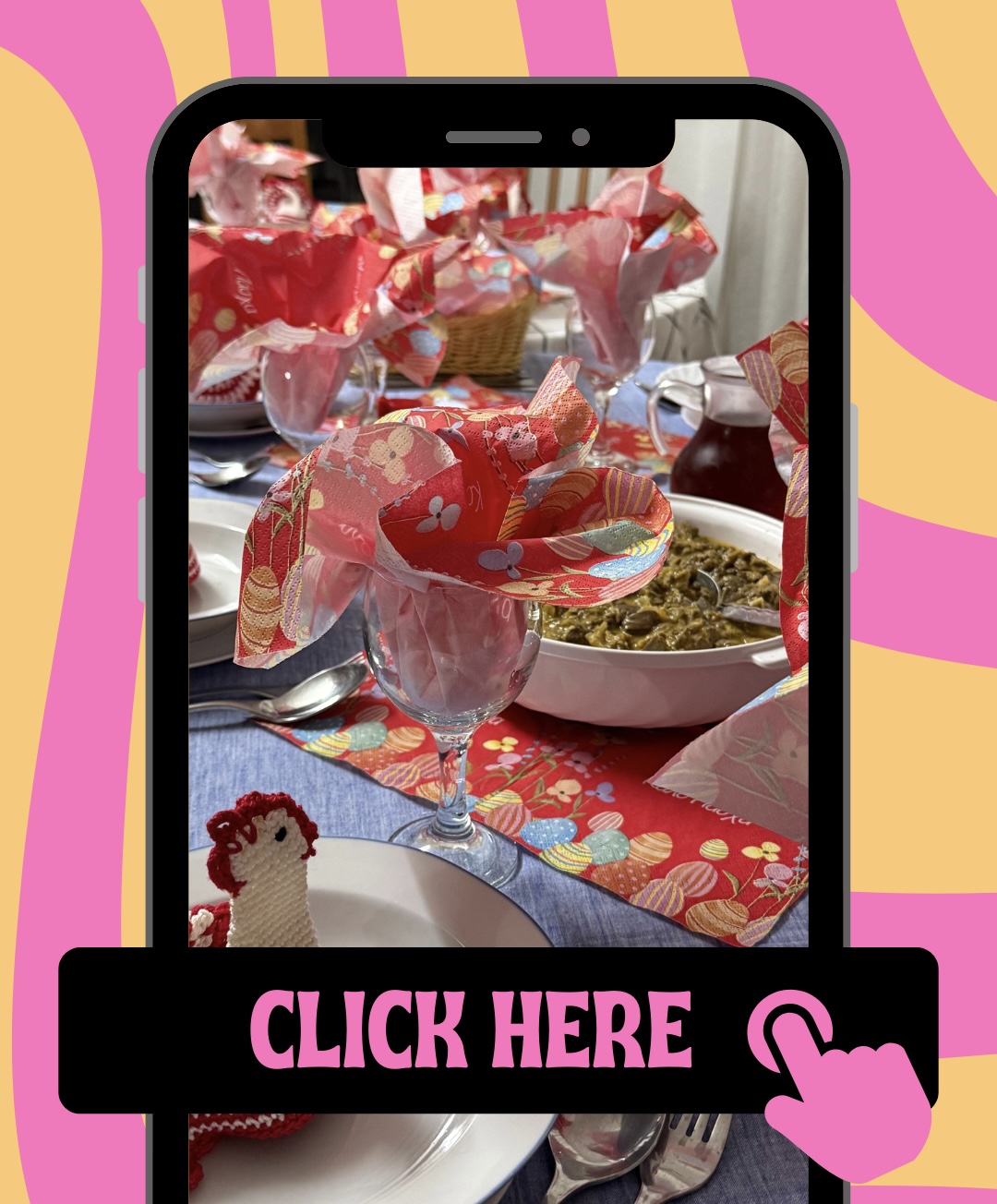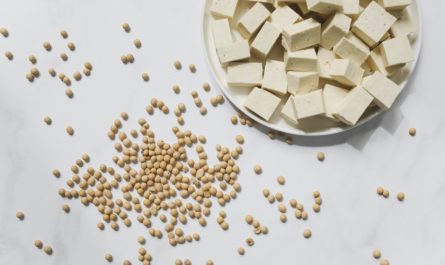In the spirit of cultural inclusivity, embracing a new culture is important, but so is remembering, celebrating, and sharing your own. That’s why I wanted to make this post about the Greek traditions of Easter, or Páscha as we call it, to share a piece of my heritage with people from all over the world. I think this is a fascinating experience thatmany may not be familiar with, and for me, it’s a celebration deeply tied to family and tradition. After two years away, I finally got to experience Greek Easter in my home country again, and it reminded me why this time of year is so special. The drawing you see in the title picture spells out “The Garden of Kind Hearts,” a name that perfectly captures the spirit of my grandmother and her sisters, who spent their summers (and often several months of the year) there, taking care of the house and garden and turning it into a truly wonderful, welcoming place.
For me, Greek Easter has always been about family, and at the heart of it all is my grandmother. She is the one who taught me everything about these traditions and the one who up to this day encourages us to celebrate and enjoy these moments together. Growing up, I spent every Easter with her and my family. This year, spending it with her again after two years away was something truly special, especially since it was my boyfriend’s first time experiencing Greek Easter.
So, if you’ve ever wondered what makes Greek Easter so special, let me take you through the traditions that make this time of year truly unforgettable.
Watch my Easter trip & experience the Greek traditions firsthand here:
Holy Week: The Build-Up to the Big Day

Greek Easter isn’t just about one day; it’s an entire week of traditions, with each day building up to the grand celebration on Easter Sunday.

Red Eggs & Easter Baking (Thursday)
On Holy Thursday, Greek households prepare for Easter by painting eggs red: a symbol of life, renewal, and the blood of Christ. Alongside the eggs, we also bake Tsoureki, a sweet, aromatic bread, and Koulourakia, traditional Easter cookies that we enjoy throughout the weekend. For my grandma especially, this is very important, and she would always have me and my cousin making Koulourakia with a recipe that she holds very close to her heart.
The Night of Resurrection (Saturday)

On Holy Saturday, everyone goes to church late in the evening, gathering with candles to receive the Holy Light. As the clock strikes midnight, the priest proclaims “Christos Anesti” (Christ is risen), and the sky lights up with fireworks. The atmosphere is electric, filled with joy, warmth, and excitement. We greet each other by saying “Christos Anesti” and responding “Alithos Anesti” (Truly, He is risen).
Then, we head home for the first Easter feast, breaking the fast with Magiritsa. This traditional soup, made with lamb offal, dill, and lemon, is a Greek Easter specialty. Some people fast for 40 days before Easter, making this first bite of meat even more meaningful.
Easter Sunday: The Biggest Celebration of the Year
If you thought Easter is about food, you were right, and all of that wasn’t even the main event. Sunday is the grand finale: the biggest feast and family gathering of the year. It’s a day-long event filled with food, music, dancing, and an overwhelming sense of togetherness.
The Lamb on the Spit & Kontosouvli

From early morning, families start preparing the lamb on the spit. A whole lamb is slowly roasted over an open fire for hours until it’s perfectly crispy on the outside and juicy on the inside. Alongside it, there’s also Kontosouvli, large chunks of pork that are marinated and grilled on a skewer, making it a true Easter delicacy. The whole process takes several hours, but it’s just part of the fun. People gather around, share drinks, and enjoy the moment together, making it a truly special experience.
Family, Food & Festivities
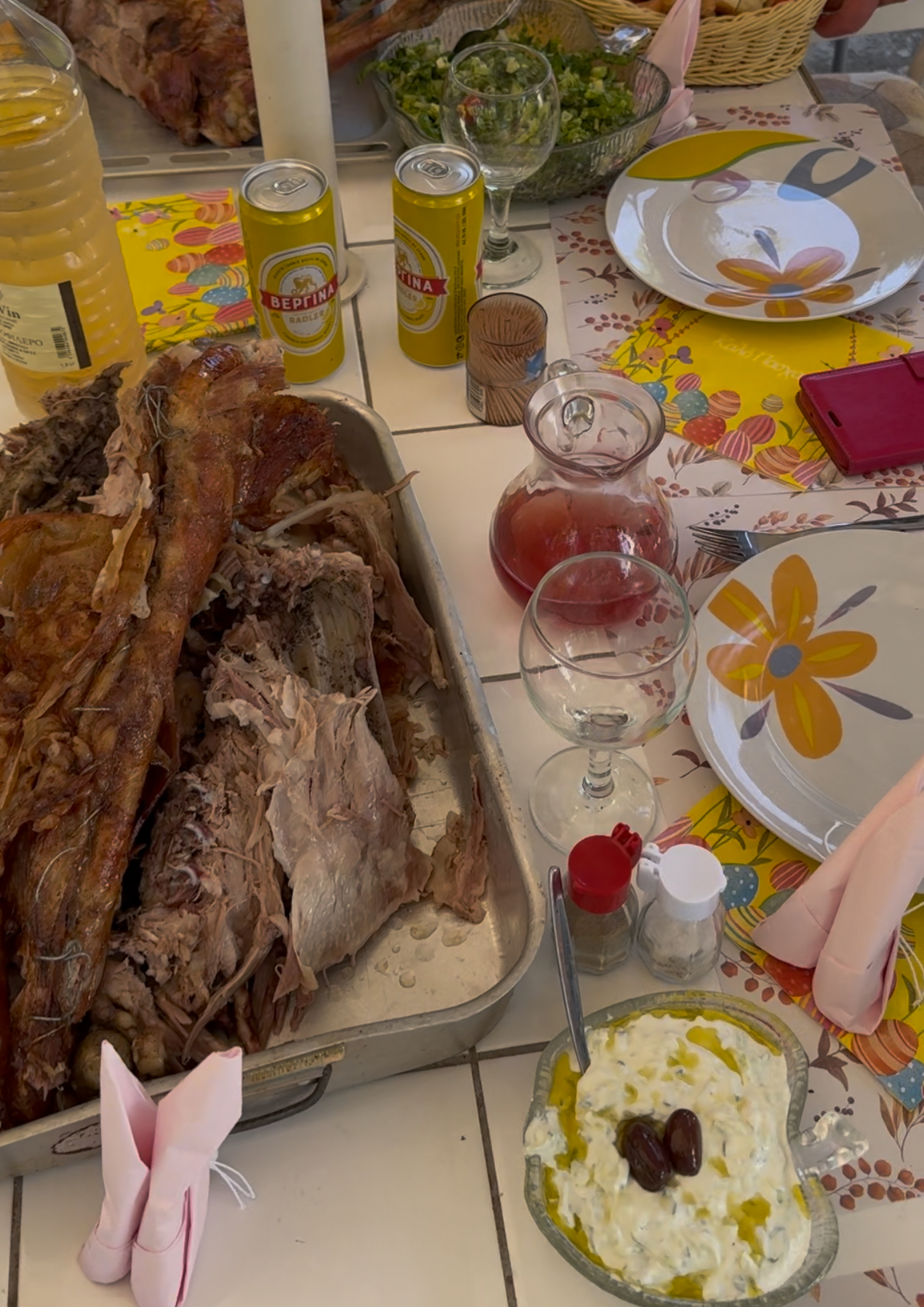
By early afternoon, the feast begins. Tables overflow with food, from Greek salads and dips to roasted meats and homemade wine. The whole day is spent eating, drinking, dancing, and celebrating until late at night. There’s music, laughter, and a deep appreciation for being together…it’s a day where everything else fades away, and all that matters is family, food, and joy.
Final Thoughts: More Than Just a Religious Holiday
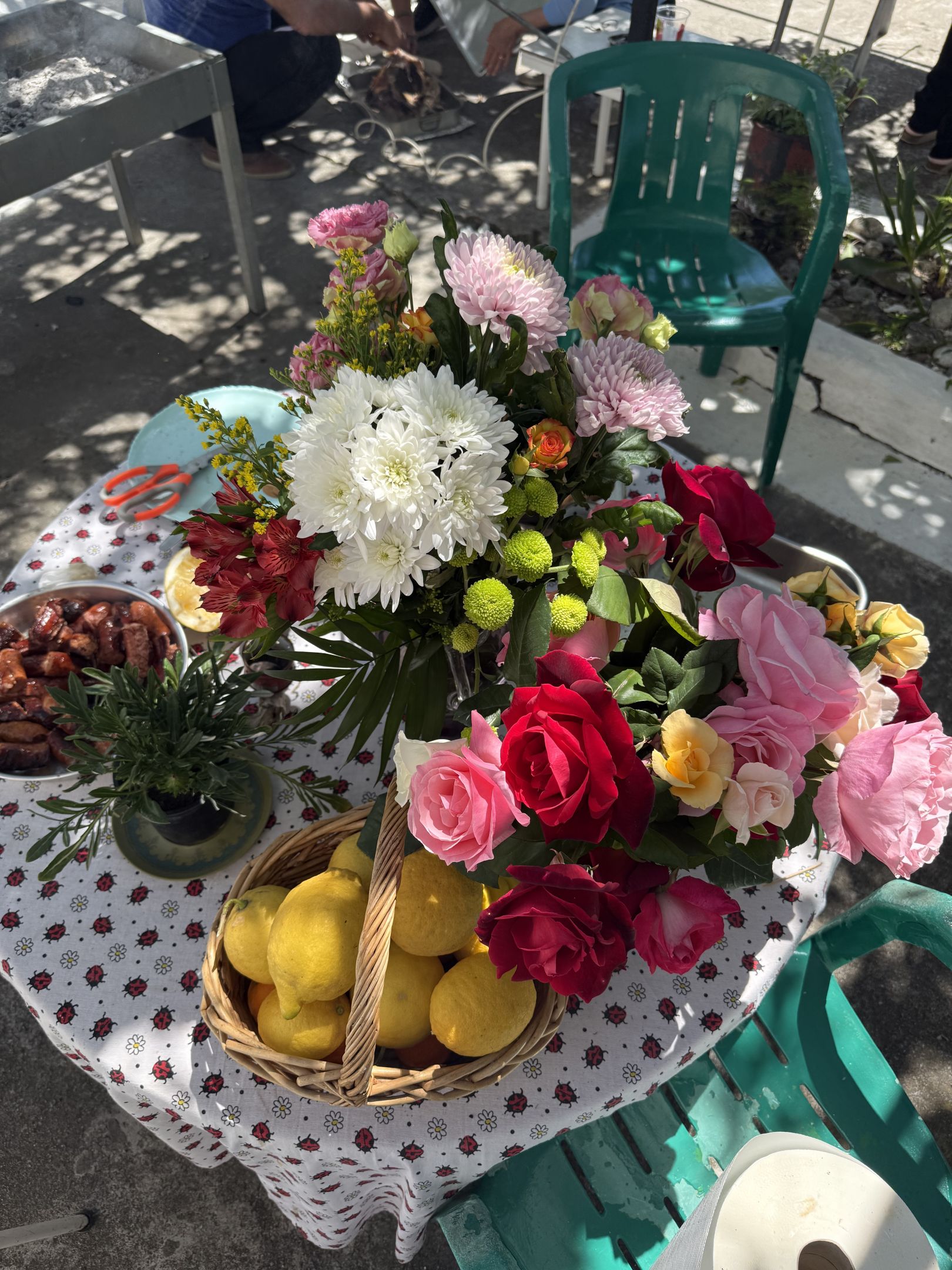 Greek Easter may have started as a religious celebration, but today, it has evolved into something much bigger; a deep-rooted cultural tradition that brings people together. Even if you’re not religious (like me), you can’t help but feel the magic of Easter in Greece. And for me, Easter will always be about the people who taught me these traditions: my grandmother, my mother, and the generations before them. Watching my grandmother knead the Tsoureki dough, carefully dye the eggs, and oversee the Easter feast reminds me how special it is to have these traditions passed down.
Greek Easter may have started as a religious celebration, but today, it has evolved into something much bigger; a deep-rooted cultural tradition that brings people together. Even if you’re not religious (like me), you can’t help but feel the magic of Easter in Greece. And for me, Easter will always be about the people who taught me these traditions: my grandmother, my mother, and the generations before them. Watching my grandmother knead the Tsoureki dough, carefully dye the eggs, and oversee the Easter feast reminds me how special it is to have these traditions passed down.
Do you have any similar easter traditions or other important celebrations in your home country? Let me know in the comments!
Next up, Best of Both Worlds: Summer in Greece vs. Summer in Switzerland
Also Check out my previous posts:
- New in Switzerland? The Ultimate Survival Guide for Expats
- Chasing the Sun: How a Greek Navigates Swiss Winters
- Cultural Shocks: Adjusting to Swiss Life
- A Bite of Home: The Ultimate Spanakopita Recipe
- Balancing Act: Managing Work, Studies and Personal Life as an Expat
- Spring Sunday Reset: Making Sundays in Switzerland Feel Like Home
All Images taken by the author.
